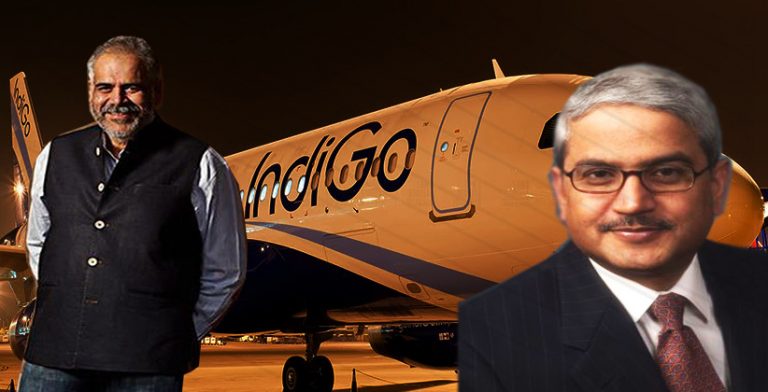The Indian aviation sector seems to be again in turbulence as IndiGo founders, Rahul Bhatia and Rakesh Gangwal, are in dispute over the airline's expansion strategies.
As per reports, both these industry stalwarts disagree on some clauses in the shareholders' agreement and the airline's management control.
The dispute between the promoters has reportedly escalated in the past few weeks, with Bhatia unsure about Gangwal's aggressive approach to expanding overseas. Bhatia also fears that Gangwal is trying to take greater control over the airline as he hired his own team, including some top-level executives, on key posts in the recent past. Both of them, however, are trying to sort out these differences, and have hired JSA Law and Khaitan & Co to settle issues, reported TOI.
In the low-cost carrier, Rahul Bhatia has a stake of 38.26 per cent, while Rakesh Gangwal owns 36.69 per cent. Founded in 2006, IndiGo listed as Interglobe Aviation, was a joint venture between Bhatia and Gangwal. In the company, Gangwal was driving force behind making IndiGo a global carrier, while Bhatia looked at the airline's affairs in India.
The issues between the two cropped up in 2018 after Gangwal sought aggressive expansion to tap into India's aviation market while Bhatia called for a balanced and cautious approach. Gangwal in February 2018 had claimed to increase the airline's capacity to 250 from 155 (almost 52 per cent). However, the proposal didn't go down well with IndiGo management, including Aditya Ghosh who subsequently resigned from the airline as its whole-time director in April 2018. Questioning Gangwal's approach, the Bhatia camp had reportedly raised the issue of "overcapacity" and "yield". The crises deepened after Gosh's exit and the appointment of foreign executives on key management posts, including Gregory Taylor as its CEO. Most of these employees were hired by Gangwal from United Airlines, where he had worked before launching IndiGo.
Since the issue between the two is at the initial stage, no one has reportedly called for buying each other's stake and exiting from the airline. Though both believe that they can grab the space left by the apparent closure of Jet Airways, both have different strategies. While Bhatia believes wide-bodied aircraft could be helpful in achieving IndiGo's international dream, Gangwal says narrow-bodied aircraft like Boeing 737 for all its operations, and codeshare agreements with other global carriers to cater to long-haul passengers, could help it gain the global market share.
With a market share of 47 per cent, IndiGo has a fleet of 225 aircraft right now. The airline runs 1,400 daily flights to 54 domestic and 17 international routes. The differences between the two may be disastrous for the aviation industry which is already in trouble after the recent shutting down of Jet Airways.








